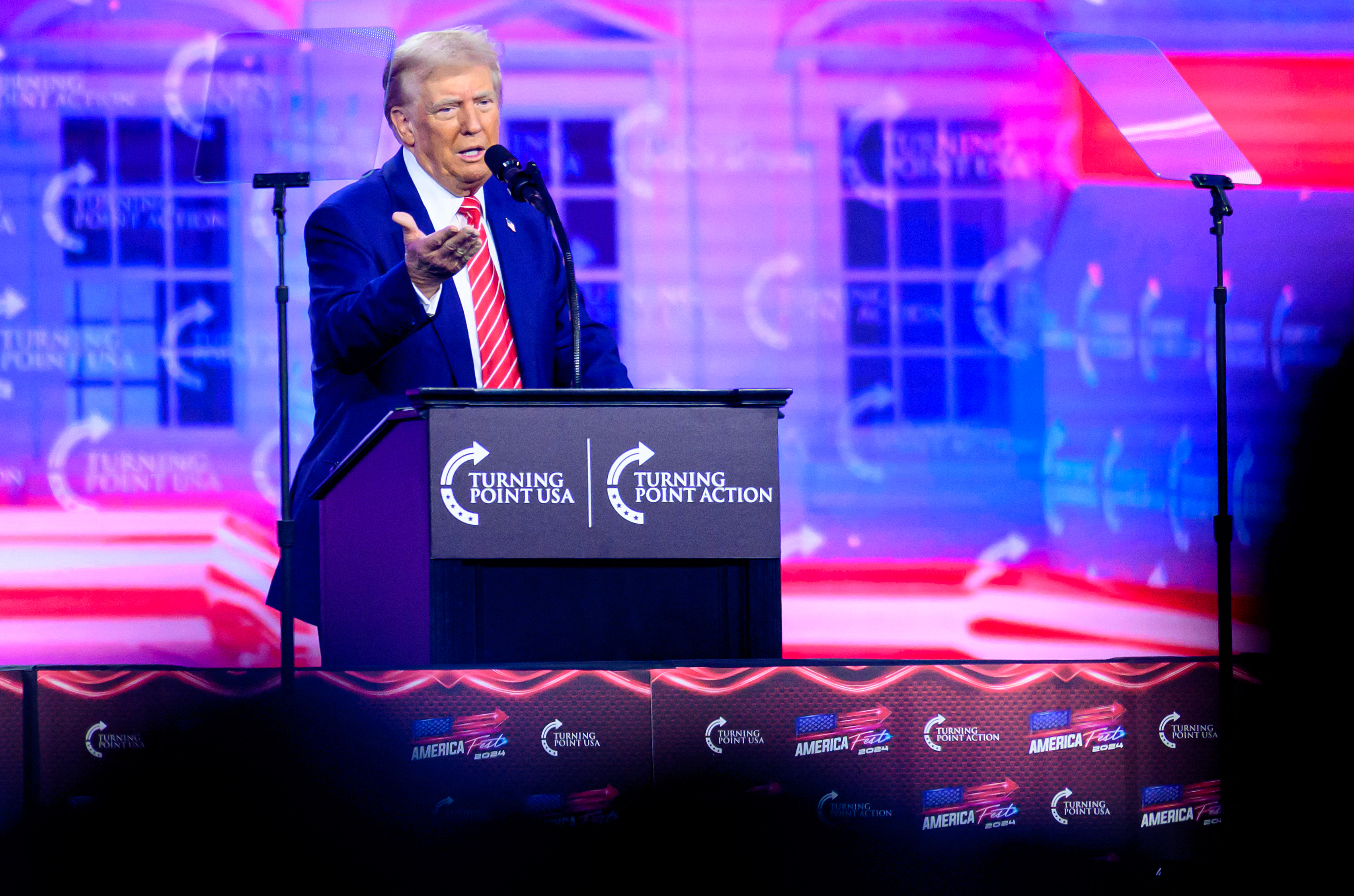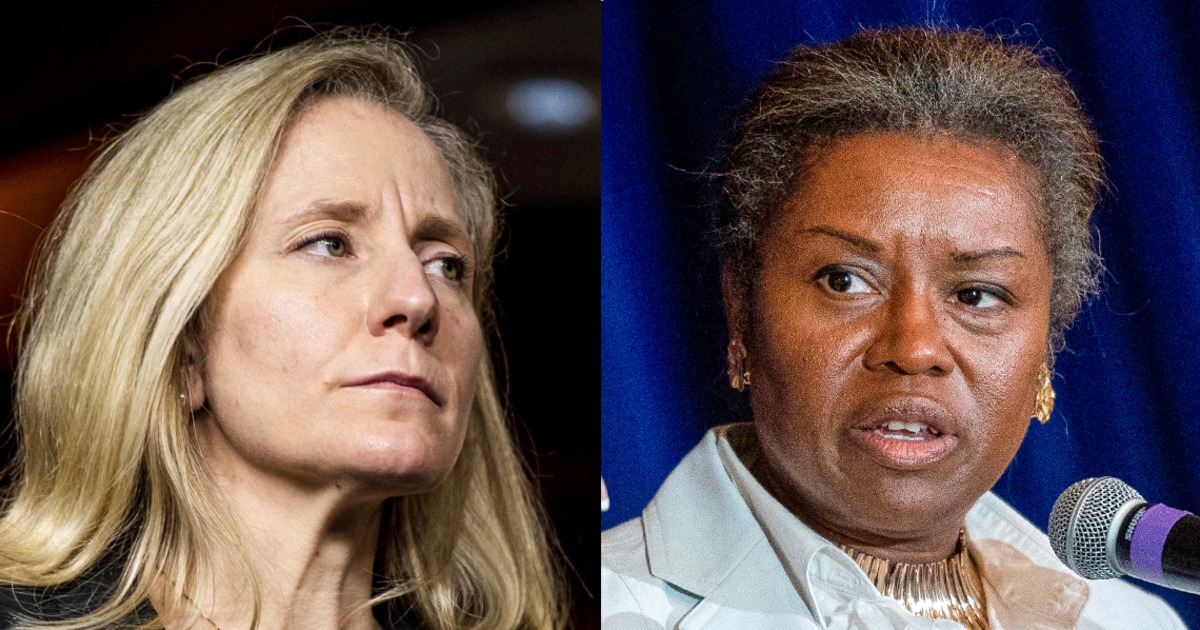What’s New
Two legal scholars have suggested Democrats should block President-elect Donald Trump from taking office, even as party leaders reject any such efforts and MAGA Republicans decry the very idea.
Newsweek reached out by email on Thursday evening to the Trump transition team for comment.
Why It Matters
In a historic political comeback, Donald Trump secured the presidency in the 2024 U.S. election, defeating Vice President Kamala Harris. This victory comes nearly four years after the January 6, 2021, Capitol riot, where a mob of his supporters stormed Congress in an attempt to overturn the 2020 election results. The insurrection led to widespread condemnation and legal challenges for Trump, including an impeachment for incitement of insurrection, though he was acquitted by the Senate. Despite these controversies, Trump’s 2024 campaign focused on economic issues, persuading voters of his capability to enhance their financial well-being, which played a significant role in his electoral success. 
What To Know
Who Is Evan Davis and David Schulte?
Evan A. Davis and David M. Schulte, two experts with extensive legal experience, wrote an op-ed for The Hill in which they argued that Democrats would be within their rights to block Trump’s certification on grounds of “an oath-breaking insurrection” that makes Trump “ineligible to be president.”
Davis is a Columbia Law School-educated lawyer who previously served as the president of the New York City Bar Association and editor of the Columbia Law Review. Schulte works as an investment banker in Chicago, but he clerked for Justice Potter Stewart and was educated at Yale Law School.
Schulte is an ardent supporter of President Barack Obama, even renting his Martha’s Vineyard home to the Obama family in 2013, and is friends with Bill and Hillary Clinton, according to Chicago Mag.
Jan 6 Cited as Cause for Blocking Certification
The argument both men put forward relies on the 14th Amendment, which says that “No person shall … hold any office, civil or military, under the United States, or under any state, who, having previously taken an oath … to support the Constitution of the United States, shall have engaged in insurrection or rebellion against the same, or given aid or comfort to the enemies thereof.”
The authors called evidence of Trump’s involvement in the insurrection “overwhelming” and, therefore, disqualifying.
Davis told Newsweek: “I think the Dems will consider because there should be some reluctance to set aside the Constitution and because they voted to impeach and convict for inciting insurrection. We wrote the piece to encourage attention to the Constitution either by rejecting electoral votes or by a 2/3 vote to remove the disability.”
Schulte told Newsweek: “I think members of Congress are becoming more aware of the issue by the hour, and they’re duty-bound to consider it as guardians of the Constitution. How they’ll react remains to be seen, both Democrats and Republicans. They’ve all taken the same oath of office.
“We wrote the piece to give voice to the constitutional issue and describe the interrelationship among the events, the official forums that have touched the issues, and the law of the Constitution and the Electoral Count Act.
“Congress will do what it does, and it has the power under section 3 to free Trump of the disability of disqualification by reason of insurrection. The politics are intense though the law is clear. Should Trump be certified, unless the disability is relieved his administration will labor under a cloud of illegitimacy.”
Josh Edelson/AFP via Getty Images
The authors noted that the Supreme Court’s decision on Colorado’s plan to leave Trump off the primary ballot, which the court rejected, would likely be the main defense that critics of their plan would use.
The Colorado Supreme Court had determined that there was “clear and convincing evidence that President Trump engaged in insurrection as those terms are used” in the 14th Amendment, but the U.S. Supreme Court determined that states lack the power to disqualify candidates for federal office.
The authors argued the decision’s relation to Trump’s certification “lacks merit” for, mainly, the fact that the power of certification of Electoral College votes “is uniquely assigned to Congress by the Constitution.” Additionally, they note the U.S. Supreme Court decision “did not address the finding that Trump had engaged in insurrection.”
“The rejection of the vote on constitutionally specified grounds is a nonreviewable political question,” Davis and Schulte wrote in their op-ed.
The Electoral Count Act that they also cited includes sections on “Grounds for objections” and “Consideration of objections and questions.” Specifically, they refer to a 2022 amendment to the act that “provides a detailed mechanism for resolving disputes as to the validity of Electoral College votes.”
“The act specifies two grounds for objection to an electoral vote: If the electors from a state were not lawfully certified or if the vote of one or more electors was not ‘regularly given,'” the authors wrote.
“A vote for a candidate disqualified by the Constitution is plainly in accordance with the normal use of words ‘not regularly given,'” they continued. “Disqualification for engaging in insurrection is no different from disqualification based on other constitutional requirements such as age, citizenship from birth and 14 years’ residency in the United States.”
The January 6, 2021, effort to block the certification of President Joe Biden has left an indelible mark on the national psyche: Trump’s opponents argue that, just as he pushed to block the certification of his rival, the Democrats should look to block him, citing the additional aspect that Trump is a convicted felon.
Democrats have spent a year saying they will not block Trump’s certification, and some legal experts in March 2024 already floated a few of the strategies that Davis and Schulte suggested.
Roll Call wrote about a similar discussion from that time, which followed the Supreme Court’s decision on the Colorado primary ballot, citing legal experts who argued that the ruling didn’t rule out the Congress using the 12th and 20th amendment powers to enforce “presidential eligibility requirements.”
But congressional members such as Democrat Senator Gary Peters of Michigan and Democrat Representative Ted Lieu of California said that they were not “election deniers” and would only look to resolve “an actual problem with a particular vote in a particular state.”
“I don’t think people should object just because they don’t like the outcome of the election. That’s what Republicans do, and that’s just called being sore losers,” Lieu told the outlet.
Representative Jamie Raskin of Maryland, a Democrat, even rejected such a stance in the immediate aftermath of the 2024 election: A fabricated quote attributed to Raskin claimed that Democrats “won’t be certifying the election” if Trump won, and Raskin set the record straight. In a post on social media platform X, formerly Twitter, Raskin wrote on November 5 that the quote was “100% fabricated.”
“It’s one more lie in the stream of right-wing lies designed to undermine our election,” Raskin said. “Despite this actionable libel and all the disinformation, America is having a free and fair election and Congress will certify the winner.”
What People Are Saying
Eric Trump, son of the president-elect, wrote on X: “You people are sick.” He included a link to the op-ed, and
Elon Musk responded to Eric Trump’s post: “Such a crazy thing for them to say. Legacy media is just the propaganda arm of the radical left.”
Steven Cheung, Trump’s campaign manager and his pick for White House Communications Director, wrote on X: “Oh look. Democrats want to steal the election and invalidate the will of the American people. Threat to Democracy.”
Jerry Dunleavy, a reporter formerly of The Washington Examiner, wrote on X: “The former editors-in-chief of the Columbia Law Review & of the Yale Law Journal want Congress to engage in what would be among the most egregious abuses of power in the history of the republic by overturning a democratic election & blocking a duly-elected president from office.”
What Happens Next
Congress will meet on January 6, 2025, to hold a session in which it will review and certify the votes for the 2024 U.S. presidential election. Nerves will remain high after the events of 2021, but Democrats have shown no willingness to block certification.














